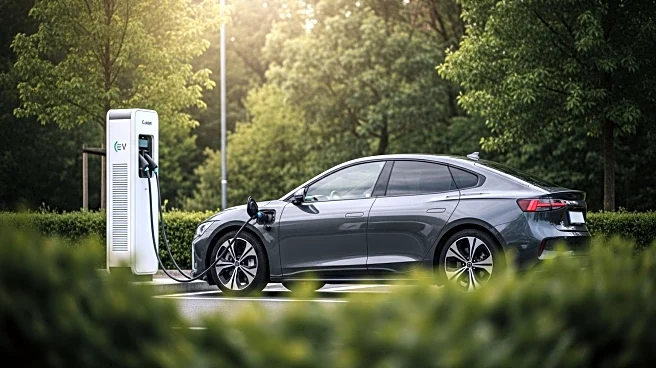What is the story about?
What's Happening?
Germany is reintroducing subsidies for electric vehicles (EVs) with new, stricter limits and expanded eligibility to include used cars. The move aims to boost EV adoption by making them more accessible to a broader range of consumers. The VW ID3, a popular battery-electric car, leads sales in Germany, highlighting the growing demand for EVs. The updated subsidy program reflects Germany's commitment to reducing carbon emissions and promoting sustainable transportation.
Why It's Important?
The revival of EV subsidies in Germany is crucial for the automotive industry, particularly as manufacturers face challenges in maintaining competitive pricing amid tariff pressures. By including used cars in the subsidy program, Germany is addressing affordability concerns, potentially increasing EV adoption rates. This policy shift could influence other countries to reconsider their EV subsidy strategies, impacting global EV market dynamics. Automakers may benefit from increased sales, while consumers gain more affordable access to sustainable transportation options.
What's Next?
Germany's updated subsidy program is expected to stimulate EV sales, encouraging manufacturers to expand their offerings and invest in sustainable technologies. As the program unfolds, stakeholders will monitor its impact on the market and consumer behavior. Automakers may adjust their pricing strategies to align with subsidy criteria, while policymakers evaluate the program's effectiveness in achieving environmental goals. The success of Germany's approach could inspire similar initiatives in other regions, fostering global collaboration on sustainable transportation.















